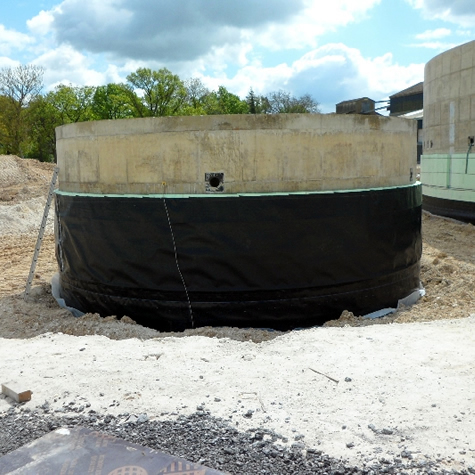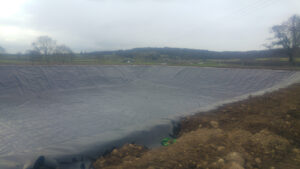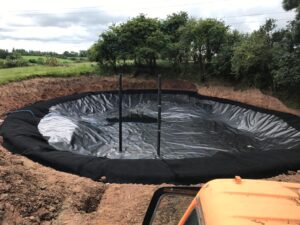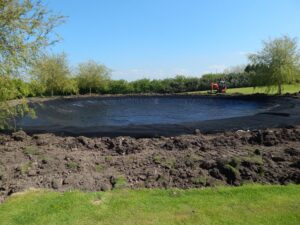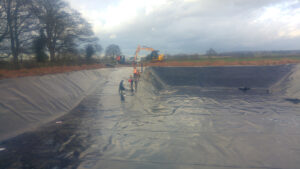In an era where environmental awareness is paramount, waste management stands as a pivotal concern within communities worldwide. The days of simply disposing of contaminants into landfills as mere holes in the ground are long gone. Today, with a deep understanding of the ecological harm caused by past practices, and a need for more efficient and practical methods, anaerobic digestion has emerged as a notable waste management system.
Enviroseal plays a crucial role in aiding the anaerobic digestion process by offering geosynthetic lining applications for the digestion tanks integral to this waste management system.
Anaerobic Digestion Waste Management
Anaerobic digestion addresses age-old waste management challenges through natural means. This process utilises biochemistry to tackle waste accumulation, employing various phases that harness microorganisms to break down biodegradable materials. By reducing waste and producing usable by-products, the process mitigates environmental impact.
Bacterial hydrolysis initiates the breakdown of insoluble organic polymers, rendering them susceptible to further bacterial action. Acidogenic bacteria then transform amino acids and sugars into hydrogen, ammonia, and organic acids. Subsequently, methanogens convert these elements into carbon dioxide and methane, creating an integrated waste management system.
This approach is adaptable across commercial, industrial, and domestic settings, offering a clean, efficient, and practical means of handling waste materials.
Benefits of Anaerobic Digestion
Anaerobic digestion yields an array of advantages, including:
Production of renewable energy (biogas)
Reduced waste generation
Effective organic waste management
Mitigation of landfill toxic gases and odors
Creation of usable materials like fertiliser
Reduction of greenhouse gases
Flexibility and Concerns
Anaerobic digestion systems can vary greatly in size and complexity, catering to specific needs. The primary concern lies in maintaining the integrity of digester tanks to prevent the leakage of potentially harmful chemicals involved in the process.
Enviroseal addresses these concerns by providing containment solutions to anaerobic digestion tanks through highly effective geomembrane liners. These liners serve as hydraulic barriers, ideal for preventing leakage and ensuring containment within these tanks.
Constructed typically from durable steel and concrete, these tanks are susceptible to leaks for various reasons. Enviroseal’s containment liners, versatile and flexible, are configured to create an impermeable seal within these tanks. Given the chemical complexity involved, the liners used are durable and possess intrinsic chemical resistance characteristics.
Compliant and Effective Solutions
Enviroseal employs materials like LLDPE, HDPE, and polypropylene for lining digester tanks due to their inherent chemical resistance. These liners adhere to relevant government regulations, ensuring environmental safety.
Whether employed independently or in tandem with other waste management systems, Enviroseal remains the preferred solution for containment needs, offering effective, compliant, and adaptable solutions to waste management challenges.
To find out more about our products and services and how we can help you, please contact us using the below –
Tel: 01695 228626
Email: enquiries@enviroseal.co.uk

